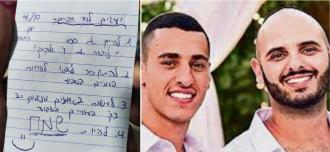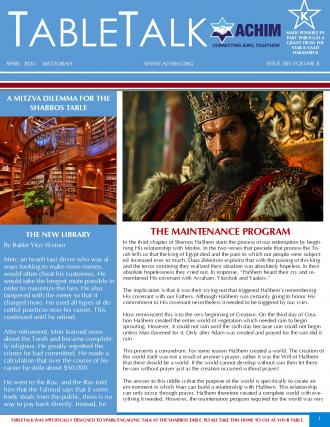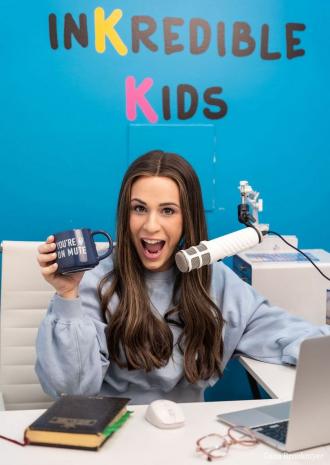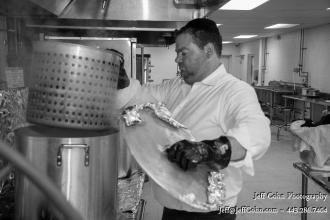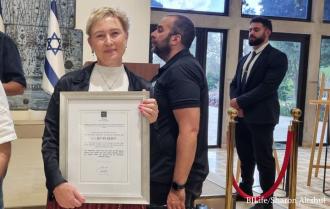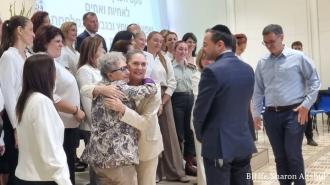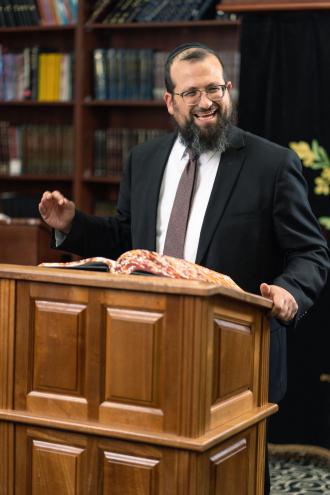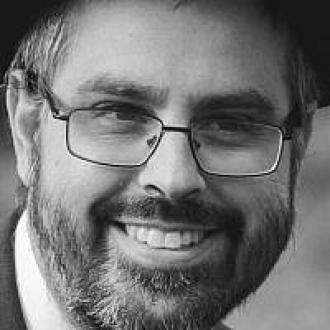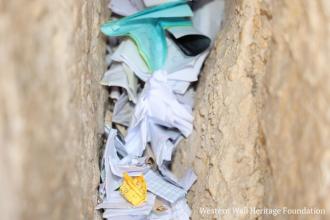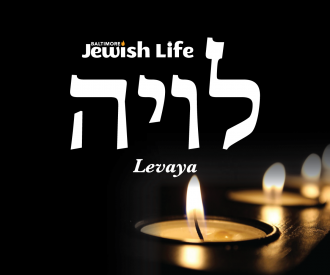Baltimore, MD - May 31, 2020 - An interview with former Baltimorean Jeremy Staiman about his new song, Refaeinu
BJL: What’s the story behind your new song?
JS: Well, the real story is that it’s not new at all. I wrote the tune to Refaeinu in the late 1980s, but I never did anything serious with it. Once it became apparent recently that people were going to be shut inside and surrounded by illness and death, I felt that since it’s a song based on our daily prayer for health, this was the right time to bring it out.
It was also clear that the music industry was going to be one of the hardest hit sectors, so this way I could at least pay a few shekels to some musicians along the way. It’s a drop in the bucket of what they need, but every drop counts.
BJL: How did you decide on the talent you hired?
JS: I had some very specific directions in mind when I started, but I also knew that my ideas would go nowhere without some serious professional help. For many years, I had seen the name Jeff Horvitch as the studio engineer on Jewish music albums, and I noticed that his works were always crystal clear. You could hear every instrument perfectly. That itself is an art. On top of that, Jeff is an accomplished music arranger. When we first moved to Israel, we lived on the same street and I met him in Shul. I knew that I wanted to involve him, but little did I know how he would make the project blossom into a very special realization of my dream.
BJL: What did he do that was so special to you?
JS: First of all, he’s a gem. Here I am, an aging music wannabe who has spent his life on the periphery of music. Many of my friends are musicians. Some of my family members are musicians. I’ve been involved with some small productions over the years. But all of a sudden I’m working with someone who works regularly with all the big name stars and famous musicians. Yet he took my project and treated it like it was the most important thing he had ever done, making it a labor of love. Every time I had an idea, he reacted enthusiastically and incorporated it in ways beyond my imagination (with the exception of a few really BAD ideas of mine!).
BJL: Anything special about the instruments you chose?
JS: My original concept was to record 5 guitars and a cello, and keep the production simple and minimalistic. Jeff added to the vision of the song without losing the feel I wanted. All of a sudden there were drums, violins, piano, percussion, mandolin, and who knows what else! Yet the song stayed true to my dream.
I had certain very specific preferences about the musicians. HaShem has his plans, and none of that worked as I had hoped. But, of course, it worked out even better! Our amazing guitarist, Amit Yitzchak, is a darling of a man from Bat Ayin, who plays regularly with Ishay Ribo in concert. It’s so fun watching someone like that work with the concept and add his special gifts to the mix.
BJL: Who are the other singers?
JS: I had wanted to make this a family project at the start, but the logistics of the lockdown made that almost impossible. In addition to my two sons Avi and Arky, my nephew Rabbi Ephy Greene and my great-nephew Ezzie Greene, two very dear friends of mine (both of whom I have known for over 40 years) took part. Rabbi Motti Kornfeld, who has been teaching and singing since the 70s, and Rabbi Col. Nosson Sachs, whose sweet voice has warmed my heart since our Yeshiva days so many years ago. To me, they are like family, so I guess it did end up as family production!
BJL: The words from the first two parts are clearly from Refaeinu in Shemoneh Esrei, but what in the world are those words in the third part?
JS: I worked in a PR agency in Brooklyn in the ‘80s, at the time I wrote the song. One of our clients was Laniado Hospital in Netanya. On their logo at the time were the words from Yechezkel Hanavi: “לתת רפואות…לחבשה ולחזקה” — to heal, treat and strengthen. I was taken by those words, and I felt they fit beautifully with the words from Refaienu, so I appended them to the song.
BJL: What do you hope to gain from this song?
JS: We have no plans to sell the song, or include it as part of a larger collection. We’re simply hoping to add a little light and hope the world at this time. It was a magical project to work on, especially because of the family and friends part of it, and I hope that comes through and helps lift people up.
BJL: Anything else you’d like to add?
JS: Just a couple of thank you’s. My mother has always thought that I’m a much better musician than I really am, and she enabled this project to happen. My wife has been an enthusiastic supporter throughout, offered excellent suggestions, and is frantically wondering what I will do once it’s all complete!



